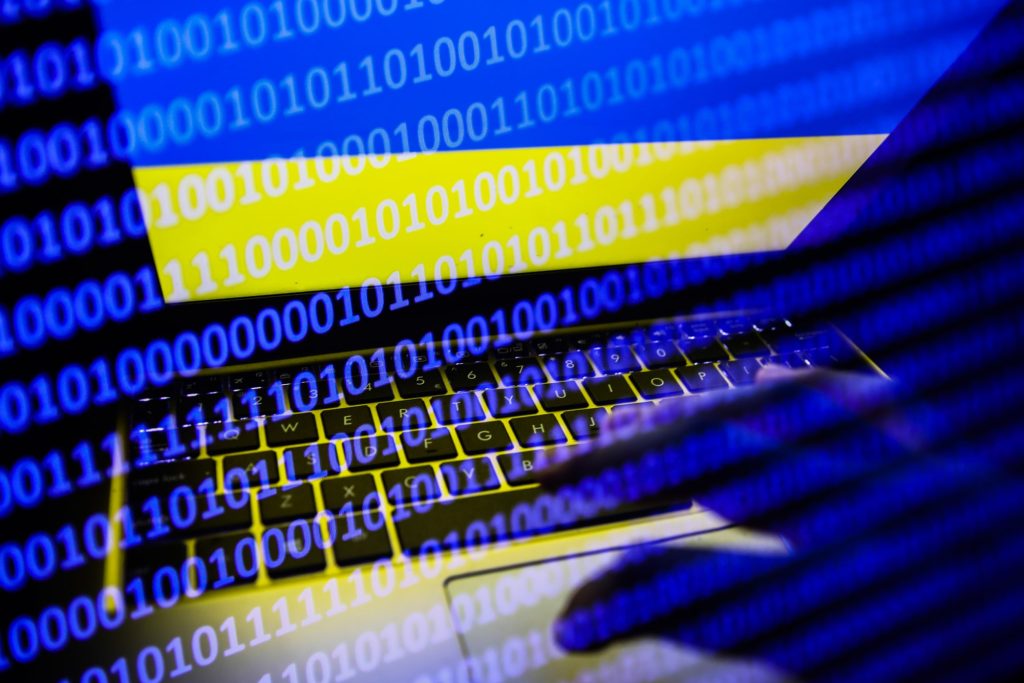The full-scale Russian invasion has thrust Ukraine’s tech sector into the limelight and highlighted the importance of a national digitalization drive that was already well underway prior to the outbreak of hostilities. While international attention has understandably focused on the innovative defense tech developments that are currently helping Ukraine to defend itself on the battlefield, digital solutions are also playing a key role in supporting the Ukrainian economy and keeping the country running in the most difficult of circumstances.
Since it was launched in 2020, the Ukrainian government’s Diia ecosystem has been at the heart of the country’s digital infrastructure. The core Diia app now has more than 19 million users, and is updated with new services on an almost weekly basis in order to keep pace with rapidly evolving wartime demands. In May 2023, an updated and upgraded version of the Diia.Education digital platform was unveiled that aims to address the considerable vocational training and recruitment challenges created by the war.
Stay updated
As the world watches the Russian invasion of Ukraine unfold, UkraineAlert delivers the best Atlantic Council expert insight and analysis on Ukraine twice a week directly to your inbox.
The Diia.Digital educational platform was originally launched in 2020 as a portal offering free edutainment content to help close the digital gap in Ukrainian society and enable individual Ukrainians to develop the skills they need in order to thrive in an increasingly digital environment. The platform proved popular, attracting 1.5 million users during the first year. However, the onset of Russia’s full-scale invasion in early 2022 made it necessary to rethink the focus of the initiative.
The Russian invasion has caused some of the most dramatic social disruption witnessed in Europe since World War II, with millions of Ukrainians becoming refugees or internally displaced persons during the first few weeks of hostilities alone. Many have also lost their homes and jobs. According to the United Nations, nearly 60% of Ukrainian IDPs are of working age, but finding a job in unfamiliar regions can often be a daunting task. One possible solution to this problem is retraining and acquiring the digital skills that employers are looking for.
While the wartime job market in Ukraine has been marked by high levels of disruption, it is also possible to identify evidence of global recruitment trends toward digitalization. Even in the wartime climate, there are rising numbers of tech-related entry-level vacancies for positions such as data analyst, digital marketeer, video editor, and chat specialist. Training for these kinds of vacancies was an obvious focus for the Diia.Education upgrade.
Eurasia Center events

There have been growing indications in 2023 that the Ukrainian economy is regaining some of its earlier buoyancy. Despite the physical and psychological horrors of the ongoing Russian invasion, Ukrainians continue to open new businesses. In the first half of 2023, more than 130,000 Ukrainians registered as private entrepreneurs. The monthly registration figure for June was the highest in three years.
This rapidly evolving employment landscape is creating a critical need for effective training strategies to help Ukrainians remain competitive. The updated and upgraded version of Diia.Education is supported by Google and the East Europe Foundation. It offers a unique range of functions that allow users to create personalized learning trajectories and tailored educational courses focusing on their specific interests and objectives.
Users can also take career-oriented tests along with standardized national digital literacy tests. There are more than 50 different job-specific educational series to choose from, covering jobs ranging from SMM specialist to baker. Additional training tools focus on digital literacy, entrepreneurship, creativity, and more. Crucially, the upgraded platform now also features a job search function.
The Russian invasion has had devastating consequences for almost every aspect of Ukrainian daily life, but Ukrainians have refused to be beaten. Instead, there has been a determination throughout society to keep going at all costs. The challenge now in terms of employment is to provide displaced Ukrainians in particular with the necessary tools to get back on their feet and contribute to the country’s recovery. This requires a balanced approach that recognizes the immediate needs of the wartime job market while also keeping in mind the changes taking place in the global economy and the skills that will be in demand in the years to come.
Ukraine was experiencing rapid digitalization for a number of years before Russia’s full-scale invasion. The past eighteen months of wartime upheaval have accelerated existing digital adoption processes and significantly strengthened the various tech segments of the Ukrainian economy. Looking ahead, it will be vital to make sure there are enough Ukrainians with the requisite skills to fill vacancies in the expanding tech sector. Providing easily accessible educational tools is a step in the right direction.
Valeriya Ionan is Ukraine’s Deputy Minister for Eurointegration at the Ministry of Digital Transformation.
Further reading
The views expressed in UkraineAlert are solely those of the authors and do not necessarily reflect the views of the Atlantic Council, its staff, or its supporters.

The Eurasia Center’s mission is to enhance transatlantic cooperation in promoting stability, democratic values and prosperity in Eurasia, from Eastern Europe and Turkey in the West to the Caucasus, Russia and Central Asia in the East.
Follow us on social media
and support our work
Image: Ukrainian flag displayed on a laptop screen and binary code code displayed on a screen are seen in this multiple exposure illustration photo taken in Krakow, Poland on February 16, 2022. (Photo illustration by Jakub Porzycki/NurPhoto)




